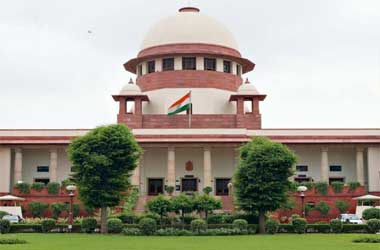 The game of poker might be extremely popular across the world but it is yet to gain a strong foothold in India, a land that has 1.2 billion people. Given time, the interest in games such as poker and rummy will expand and create possibly one of the biggest gambling markets in the world.
The game of poker might be extremely popular across the world but it is yet to gain a strong foothold in India, a land that has 1.2 billion people. Given time, the interest in games such as poker and rummy will expand and create possibly one of the biggest gambling markets in the world.
Over the past few years there has been a growing interest in games like rummy and poker, especially from the younger generation. Companies such as Thrill Poker and Adda52 have launched online operations in India and are confident that Indian market will prove to be extremely lucrative in the next few years.
However, all that is now under threat as the Supreme Court in India is dealing with complaints raised against gaming organizations that have been providing games such as poker and rummy.
A number of clubs and organizations in Chennai, (formerly known as Madras) is the main city providing such games. Poker and rummy players are regular visitors to clubs like the Madras City Club (India) Pvt Ltd, Mahalaxmi Cultural Association, Madras Sakthi Recreation Centre and the Madras Darkhorse Farm & Land Development Pvt Ltd.
A group known as the Public Interest Litigation took offence with these clubs and filed a complaint way back in 2012 stating that this was illegal and needed to be banned. The case was initially heard by the Madras High Court who determined that these clubs could not really profit and make huge revenue from such games. The court also made its decision based on what the Supreme Court had determined way back in 1968 that these games are skill based and hence does not fall under the category of illegal gambling.
The court had ruled stating that
It has been authoritatively held that a competition which substantially depends on skill is not gambling. Gaming is the act or practice of gambling on a game of chance. It is staking on chance where chance is the controlling factor. ‘Gaming’ in the two acts would, therefore, mean wagering or betting on games of chance.
The case is one again being debated in 2014 and it is highly unlikely that the Supreme Court will change its decision and ban online poker. The Indian Supreme Court is likely to make a decision in the coming weeks and it will play a critical factor in the popularity and expansion of online poker and rummy in India.





